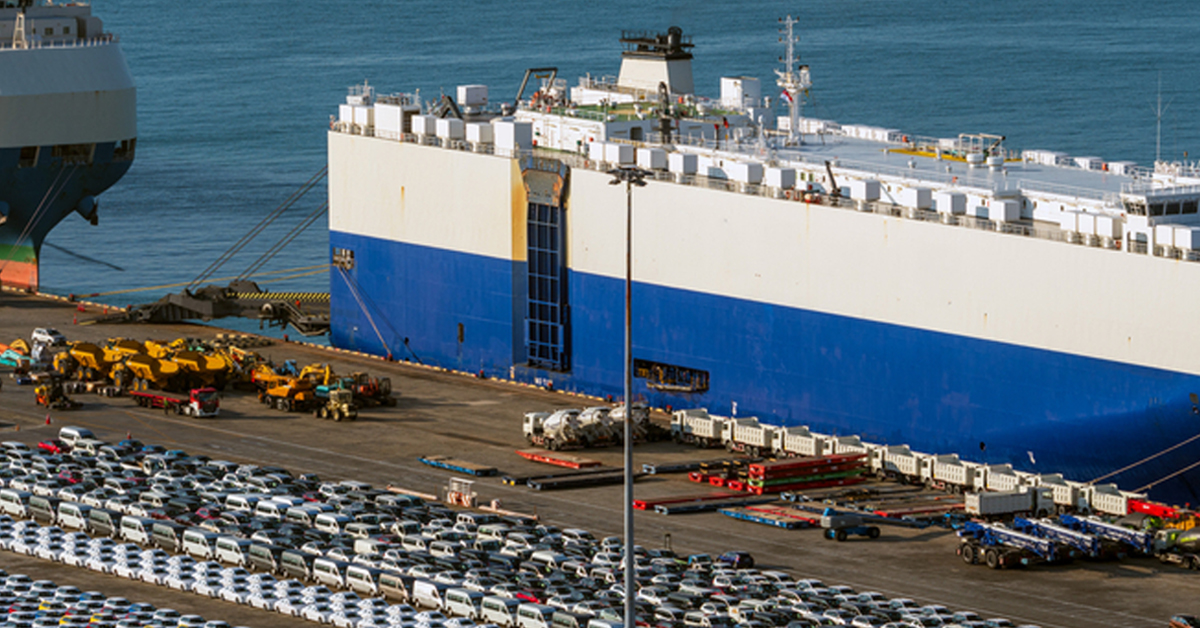The U.S. automotive industry was battered in 2022, with its sales dropping about 8% from 2021 to 13.7 million vehicles, a sales total not seen since 2011. GM was an exception with U.S. sales up by 2.5% YOY in 2022, a metric due partly to its robust sales of mid-size pickups, according to CNBC. What caused this rocky year for car manufacturers? In this blog, we’ll take a look at the supply chain trends that shaped the automotive industry in 2022.
Global Semiconductor Shortages
Through the year’s first half, automotive sales were bogged down by production backlogs that arose predominantly from shortages of semiconductors and other supply-chain snarls. By the fourth quarter, managers at automotive firms “were encouraged by relatively strong sales … as factory work accelerated in the midst of improved parts supply,” wrote the Wall Street Journal on January 4. But by the end of the year, rising interest rates and inflation were reducing “consumers’ ability to afford new wheels.”
Supply shortages of some automotive semiconductors have reportedly eased, but analysts expect shortages to continue for two to four years, depending on the chip node size and other features. According to supply chain and manufacturing expert Willy Shih, a major factor in the continuing delays is the industry’s requirement to put freshly designed chips through “accelerated life testing at elevated temperatures and harsh conditions” before putting them in cars. “Automakers have taken as long as three to five years to design, test, and validate new chips,” wrote Shih in Forbes in November 2022.
Increase in ADAS and Electric Vehicles
Other significant factors in the persistence of chip supply challenges: higher levels of advanced driver assistance systems (ADAS) and more electric vehicles translate into demand for more capable chips. “The growing sophistication of vehicles means that, despite recent [semiconductor manufacturing] capacity investments, the imbalance between chip supply and demand will persist—at least for some types of semiconductors—over the next four years,” wrote BCG analysts in October 2022. “However, the nature of the chip shortages and the device types affected will change over time, requiring automakers to actively manage risks as the situation evolves.”
Making more electric vehicles will also require automakers to source from suppliers unfamiliar with the rigorous requirements of automakers’ precise inventory systems, which demand materials and components be delivered in exact quantities every day and even every hour.
Uyghur Forced Labor Protection Act
As if these challenges weren’t enough to make an automotive supply chain leader feel like an electric pickup had run her over—at the end of the year, the industry came in for harsh criticism surrounding the Uyghur Forced Labor Protection Act (UFLPA). Research by Sheffield Hallam University “revealed massive and expanding links between western car brands” and exploitation of Uyghurs and other minorities in China’s Xinjiang province. Forced labor, the researchers reported, is “in everything from the hood decals and car frames to engine casings, interiors and electronics.”
The U.S. Senate Committee on Finance launched an investigation into the import practices of eight large automakers. “Unless due diligence confirms that components are not linked to forced labor, automakers cannot and should not sell cars in the U.S. that include components mined or produced in Xinjiang,” said Committee Chair Ron Wyden (D-OR).
ESG Concerns About Battery Minerals
Major ESG questions also loom over the sourcing of critical battery minerals. These ESG challenges in supply chains are no longer just about corporate ethics and reputations. With the enactment of Uyghur Forced Labor Protection Act and other forced labor and supply chain sustainability laws in the U.S. and Europe, costly fines and losses of import shipments can result from violations. In short, OEMs in automotive and other industries are expected and required to know where and by whom parts and materials are made.
Since most of these ESG issues arise in the lower tiers of supply chains—not from primary tier-one suppliers—multi-tier supply chain mapping is becoming more critical than ever to automakers. On top of the strategic and competitive advantages this type of visibility provides, it will be critically important to comply with forced labor and other ESG requirements.
What will the Automotive Industry look like in 2023?
Going into 2023, it’s likely these factors will continue to play a major role in shaping the automotive industry. But what else does the future hold? It’s impossible to know what new supply chain disruptions will occur, but with Resilinc, you can navigate those risks with speed and ease. Learn more about how Resilinc helps automotive companies identify and act on supply chain changes.






